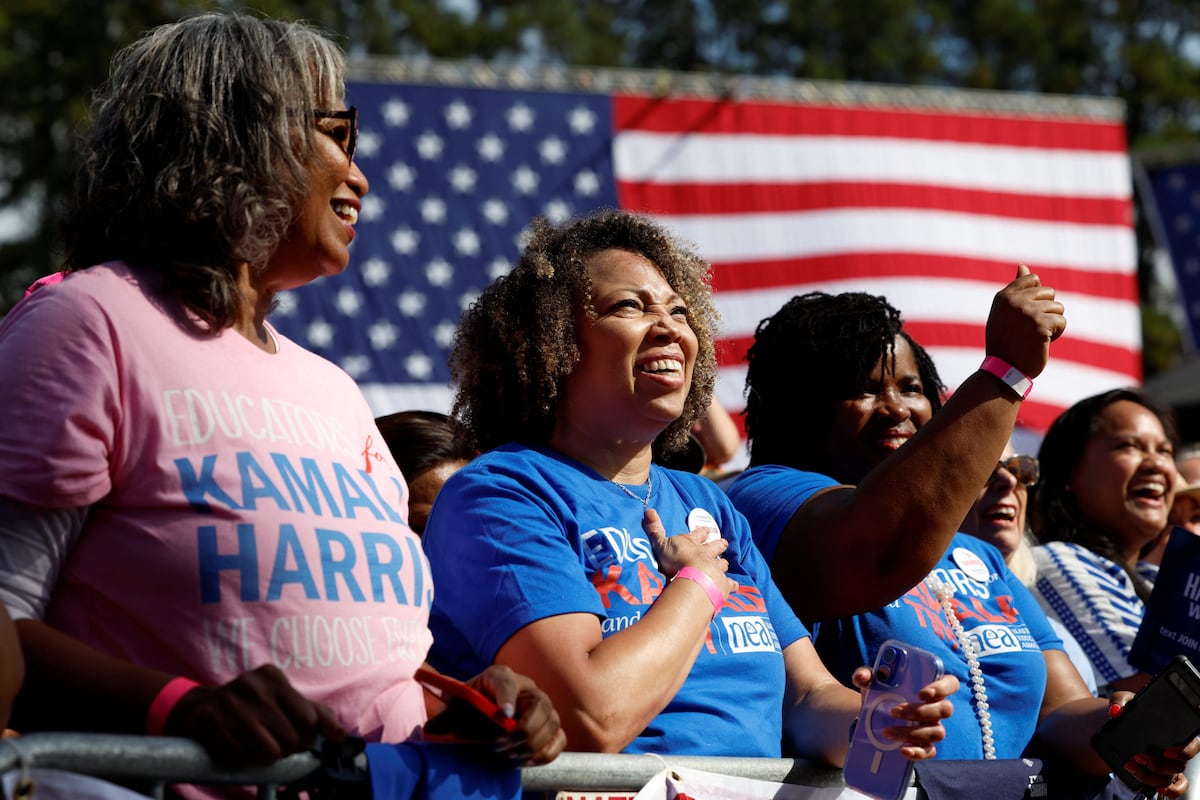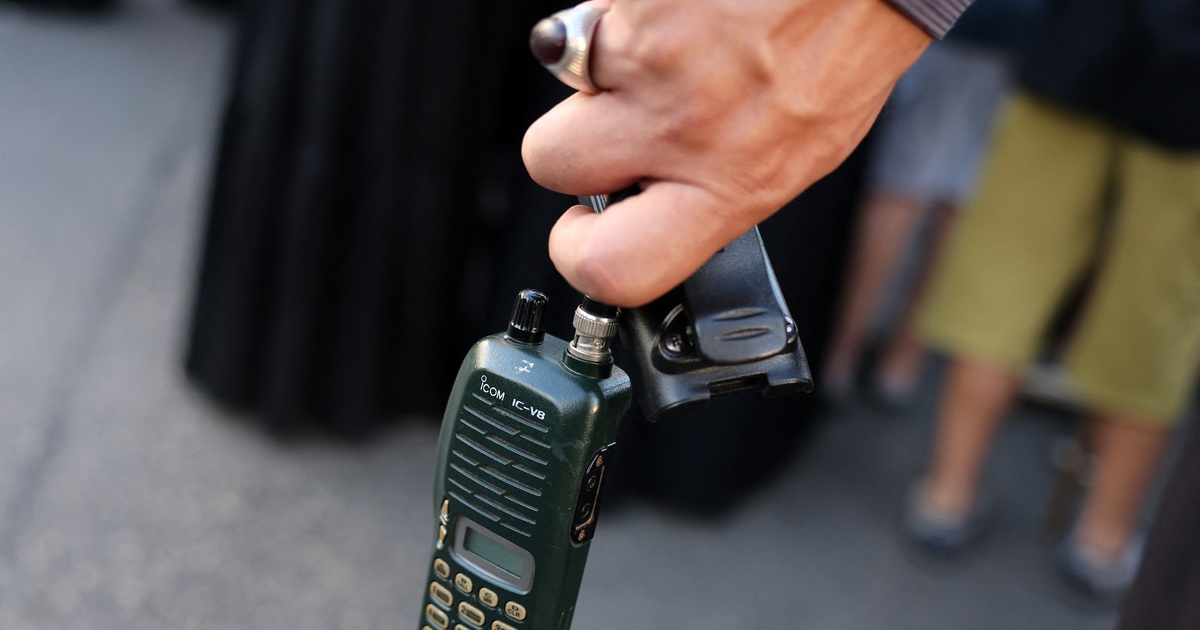Donald Trump has scheduled three rallies in North Carolina (in Charlotte, Greensboro and Kingston) for the last weekend of the campaign. He will still return on Monday to give another one in Raleigh. He hopes to bring together more than 45,000 people in these four events. It is proof of the importance that the candidates give to the decisive states. Both the former president and his rival, Kamala Harris, have focused between two-thirds and three-quarters of their events on them in the last two months of the campaign. On the other hand, in more than 30 of the 50 States they have not seen either of the two presidential candidates pass throughout the entire campaign.
With the Electoral College system in which the winner of a State takes all its delegates, it is not effective to campaign in those in which the difference between the two is wide. All attention is focused on the 93 electoral votes concentrated in those seven districts, plus the vote from a district in Nebraska that could break the tie in a combination that is relatively probable. A few tens or hundreds of thousands of votes in Pennsylvania, Georgia, North Carolina, Michigan, Arizona, Wisconsin and Nevada hold the keys to the White House.
Pennsylvania, the most precious trophy
19 electoral votes | Winner in 2020: Biden | Winner in 2016: Trump
With its 19 electoral votes and a technical tie in the polls, it is the most decisive of the decisive states. Almost all of Kamala Harris’ options involve winning there. The Democrat will spend Monday touring the State with three rallies: in Allentown in search of the Latino vote; in industrial Pittsburgh, and in Philadelphia, the largest city in the State. Trump will do a double on Monday in the also Latin Reading and in Pittsburgh. The Latino vote—and particularly the Puerto Rican vote—may be key.
Georgia, almost essential for Trump
16 electoral votes | Winner in 2020: Biden | Winner in 2016: Trump
The last time a Republican won the election without winning Georgia, which now has 16 electoral votes, was Ronald Reagan, in 1980 (his rival, Jimmy Carter, was from that state). Biden won there by less than 12,000 votes in 2020, breaking a streak of six consecutive Republican victories since 1996. If Trump does not win there, his chances of being elected president become more complicated. At the moment, he seems to have some advantage in the polls. The degree of mobilization of the black vote can tip the balance.
North Carolina, with the Republican on the defensive
16 electoral votes | Winner in 2020: Trump | Winner in 2016: Trump
Of the seven decisive states, it is the only one where Joe Biden did not win in 2020. However, the polls have tightened this time in a state where the rural-city contrast is enormous and in which the mobilization of the black vote can give surprises. . That Trump has held four rallies there in recent days is proof that he does not have it all. The campaign has been marked by the passage of the destructive hurricane Heleneand for Trump’s hoaxes about emergency federal aid.
Michigan, pending the Arab and industrial votes
15 electoral votes | Winner in 2020: Biden | Winner in 2016: Trump
Joe Biden received a significant punishment vote in the Michigan primaries for his support for Israel in the Gaza war. Abstention or voting for minority options of Arab Americans could be key in that State, where the two candidates are also fighting for the vote of workers in the automobile industry and their auxiliaries. The president of the sector union clearly supports Harris, but his bases are more divided. Even so, the Democrat seems to have a minimal advantage in a state with 15 electoral votes.
Arizona, the battle of the border
11 electoral votes | Winner in 2020: Biden | Winner in 2016: Trump
The only decisive state that borders Mexico is Arizona. Immigration has been Trump’s main battlehorse during the campaign. His xenophobic message has not prevented him from increasing his support among the Latino electorate, with a strong presence in the State, which has 11 electoral votes. Democrats hope to mobilize their voters thanks to the referendum on abortion and the senatorial elections that are held parallel to the presidential elections, but Trump seems to have the advantage for now.
Wisconsin, the third brick of the ‘Blue Wall’
10 electoral votes | Winner in 2020: Biden | Winner in 2016: Trump
Experts consider that the easiest path to victory for Harris is to win in the states of the so-called rust belt. If the Democrat wins in Pennsylvania and Michigan (which is already quite an assumption) it would theoretically be enough for her to also add the victory in Wisconsin to add 10 more electoral votes and reach the 270 required to become president. The Republicans held their convention in Milwaukee, the largest city in the State, to break that brick in the wall. Harris seems to have some advantage.
Nevada, the wild card in the deck
6 electoral votes | Winner in 2020: Biden | Winner in 2016: Clinton
Of the seven decisive states, Nevada has the fewest votes in the Electoral College: only six. Both Harris and Trump have paths to victory even if they lose there, but he can become the essential wild card in a dozen combinations. The forces there are very equal. Trump tried to woo Las Vegas hospitality workers with a tip tax break, but Harris matched the bet. The Latino vote can also be decisive.
Omaha, the possible tie-breaking vote
1 electoral vote | Winner in 2020: Biden | Winner in 2016: Trump
There are two States in which the winner does not take all the votes in the Electoral College: Maine and Nebraska. The Omaha district, in Nebraska, provides a Democratic-leaning vote, but less assured. If Harris were to win in the Blue Wall and Trump in the rest of the states, retaining him would be decisive to avoid a tie of 269 electoral votes. If this assumption were to occur, the president would be elected by the House of Representatives and the vice president by the Senate, but through state delegations. Republicans Donald Trump and JD Vance would be favorites in that case.










